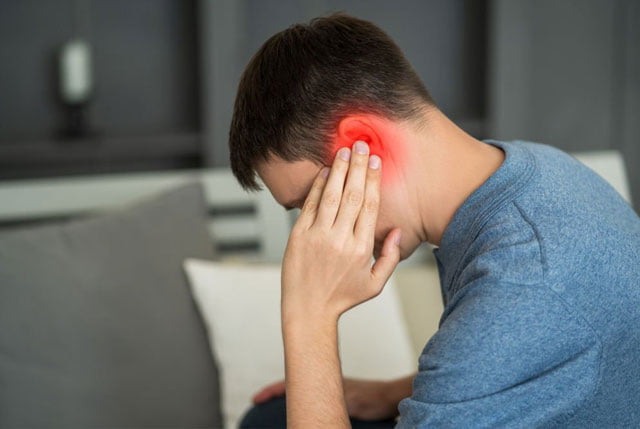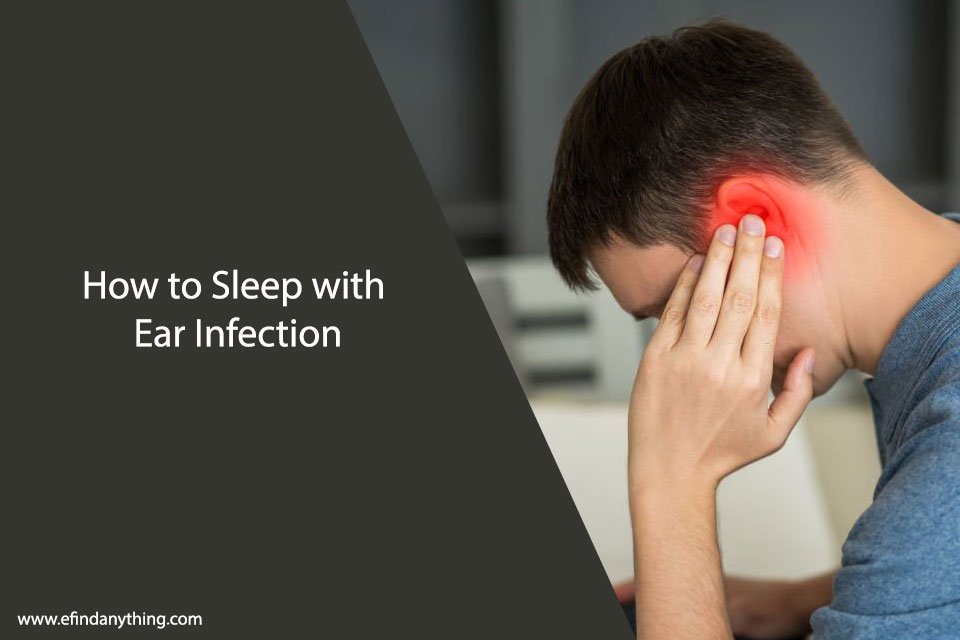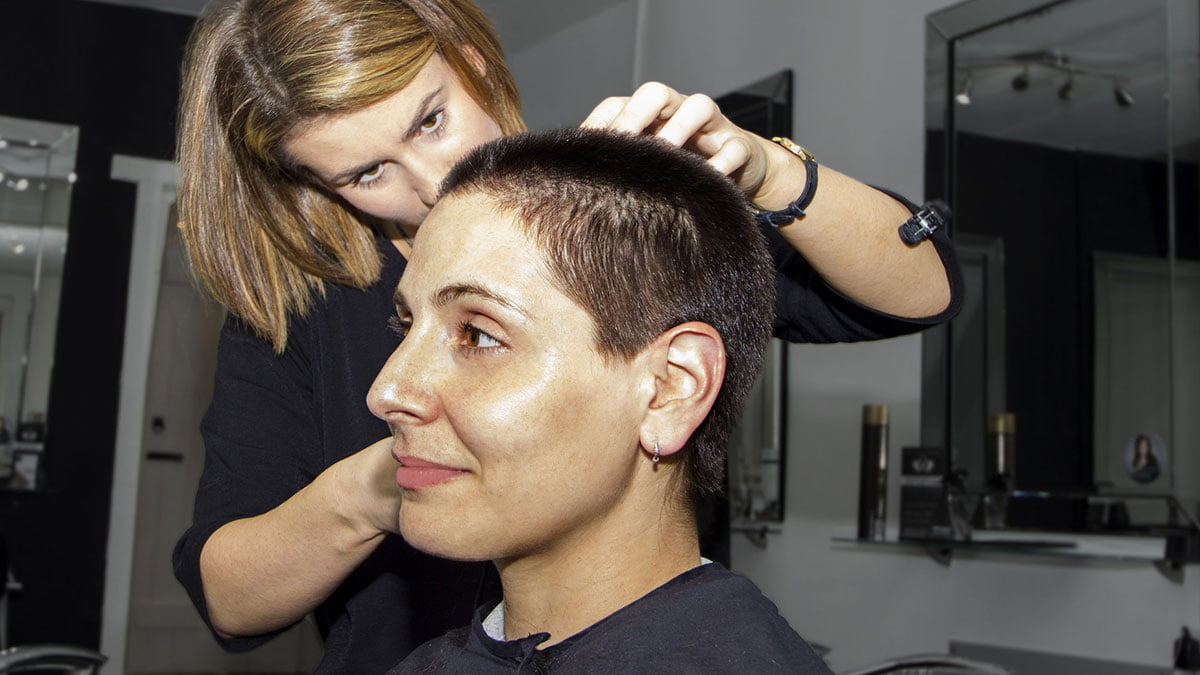When you have an ear infection, getting a good night’s sleep can be a challenge. The pain, discomfort, and ringing in your ears can make it difficult to fall asleep or stay asleep. In this article, I will share some tips and tricks on how to sleep with an ear infection, so you can get the rest you need to feel better.
One of the most important things you can do to sleep with an ear infection is to manage the pain. Over-the-counter pain relievers like ibuprofen or acetaminophen can help reduce the pain and inflammation in your ear. You can also try using a warm compress or heating pad on your ear to help soothe the pain. Additionally, try sleeping with your head elevated to help reduce pressure in your ear and alleviate pain.

Table of Contents
Understanding Ear Infections
Ear infections are a common condition that can cause discomfort and pain in the ear. They occur when the middle ear becomes inflamed due to the presence of bacteria or viruses. Ear infections can affect people of all ages, but they are more common in children than adults.
There are three types of ear infections: outer ear infections, middle ear infections, and inner ear infections. Outer ear infections, also known as swimmer’s ear, occur when bacteria or fungi infect the skin of the ear canal. Middle ear infections, also known as otitis media, occur when bacteria or viruses infect the space behind the eardrum. Inner ear infections, also known as labyrinthitis, occur when the inner ear is infected.
Symptoms of ear infections can include ear pain, fever, headache, difficulty sleeping, and difficulty hearing. Treatment for ear infections depends on the type and severity of the infection. Mild ear infections may resolve on their own, while more severe infections may require antibiotics or other medications.
There are several factors that can increase the risk of developing an ear infection, including age, allergies, sinus infections, and exposure to cigarette smoke. It is important to take steps to prevent ear infections, such as keeping the ears clean and dry, avoiding exposure to cigarette smoke, and getting vaccinated against the flu and pneumococcal disease.
In summary, ear infections are a common condition that can cause discomfort and pain in the ear. There are three types of ear infections, and symptoms can include ear pain, fever, and difficulty hearing. Treatment depends on the type and severity of the infection, and there are steps that can be taken to prevent ear infections.
The Importance of Sleep
When dealing with an ear infection, getting proper rest is crucial for your body to heal. Sleep is a time when your body repairs and regenerates, making it essential for a healthy immune system. Lack of sleep can weaken your immune system, making it harder for your body to fight off infections.
Additionally, when you are sleep-deprived, your body produces more stress hormones, which can lead to inflammation and make it more difficult for your body to heal. This can exacerbate the symptoms of an ear infection, making it more painful and harder to manage.
Getting enough sleep can also help reduce pain and discomfort associated with ear infections. When you are well-rested, you are better equipped to manage pain and discomfort, making it easier to get through the day.
Overall, getting enough sleep is essential for your body to heal from an ear infection. It is important to prioritize rest and take steps to ensure you are getting enough sleep each night.
Challenges of Sleeping with Ear Infection
When I had an ear infection, I found it challenging to sleep at night. The pain and discomfort kept me awake, and I often woke up feeling tired and irritable. Here are some of the challenges I faced when trying to sleep with an ear infection:
- Pain: Ear infections can cause intense pain, especially at night when lying down. The pressure from the pillow can exacerbate the pain, making it difficult to find a comfortable position to sleep in.
- Discomfort: The ear may feel full or blocked, making it difficult to hear or causing a sensation of pressure in the ear. This can make it hard to relax and fall asleep.
- Itching: Some ear infections can cause itching or irritation in the ear canal, which can be distracting and prevent sleep.
- Tinnitus: Tinnitus, or ringing in the ears, is a common symptom of ear infections. Ringing in your ears can be attributed to allergy induced tinnitus. It can be especially noticeable at night when the environment is quiet, making it difficult to fall asleep.
To overcome these challenges, I found some strategies that helped me sleep better:
- Pain relief: Over-the-counter pain relievers such as ibuprofen or acetaminophen can help alleviate the pain associated with ear infections. Be sure to follow the dosage instructions on the package.
- Warm compress: Applying a warm compress to the affected ear can help reduce pain and discomfort. Be sure to use a clean, warm cloth and test the temperature before applying it to the ear.
- Ear drops: Some ear infections may require prescription ear drops to help alleviate symptoms. Be sure to follow your doctor’s instructions for use.
- White noise: Playing white noise or soothing music can help mask the ringing in the ears and promote relaxation.
- Sleeping position: Sleeping with the affected ear facing up can help reduce pressure and pain. You may also want to consider using a travel pillow or propping yourself up with extra pillows to elevate your head and promote drainage.
Overall, sleeping with an ear infection can be challenging, but there are strategies that can help alleviate symptoms and promote better sleep.
Pre-Sleep Preparations
Before going to bed with an ear infection, there are some pre-sleep preparations that can help alleviate the pain and discomfort. Here are some tips that have worked for me:
Cleaning the Ear
Cleaning the ear is essential before going to bed. It helps to remove any excess wax or debris that could cause further irritation. I recommend using a warm, damp washcloth to gently clean the outer ear. Avoid inserting anything into the ear canal, as this can push the infection deeper and worsen the condition.
Applying Warm Compress
Applying a warm compress to the affected ear can help reduce pain and inflammation. I usually soak a clean washcloth in warm water, wring it out, and place it over my ear for 10-15 minutes. This helps to increase blood flow to the area and promote healing.
In addition to these pre-sleep preparations, it’s important to sleep in a comfortable position that doesn’t put pressure on the affected ear. Using an extra pillow to elevate the head can also help to reduce pain and discomfort.
Remember, if your ear infection is severe or doesn’t improve after a few days, it’s important to seek medical attention.
Sleeping Positions for Ear Infection
Elevated Head Position
When dealing with an ear infection, it is important to avoid lying flat on your back or on the affected ear. This can cause further discomfort and even worsen the infection. Instead, try sleeping with your head elevated. This will help to reduce the pressure on your ear and promote drainage of any fluids that may be causing the infection.
One way to achieve an elevated head position is by using an extra pillow or two. Simply place the pillows under your head and shoulders to create a slight incline. Alternatively, you can use a wedge pillow specifically designed for this purpose.
Avoiding the Infected Side
Sleeping on the infected side can be extremely uncomfortable and can worsen the symptoms of an ear infection. To avoid this, try sleeping on the opposite side or on your back with your head elevated.
If you find it difficult to sleep on your back, try using a body pillow to support your upper body and keep you from rolling onto your side. You can also try placing a pillow behind your back to keep you from turning over during the night.
Remember, getting enough rest is crucial when dealing with an ear infection. By following these simple sleeping positions, you can help to alleviate discomfort and promote healing.
Using Ear Plugs and Ear Drops
Choosing the Right Ear Plugs
When dealing with an ear infection, ear plugs can help to reduce noise and promote a peaceful sleep. However, choosing the right ear plugs is important to ensure maximum comfort and effectiveness.
There are a variety of ear plugs available in the market, including foam, silicone, and wax. Foam ear plugs are the most commonly used and are easily available at drug stores. Silicone ear plugs are reusable and can be molded to fit the ear canal. Wax ear plugs are made of soft wax and are comfortable to wear for long periods.
When selecting ear plugs, it is important to consider the size and shape of your ear canal. It is recommended to try different types of ear plugs to find the most comfortable one for you.
Effective Use of Ear Drops
Ear drops can help to relieve pain and reduce inflammation caused by an ear infection. However, it is important to use them correctly to ensure maximum effectiveness.
Before using ear drops, it is important to clean the ear canal to remove any excess earwax or debris. To do this, tilt your head to one side and gently pour warm water into your ear. Allow the water to drain out before repeating the process on the other ear.
Once the ear canal is clean, it is time to use the ear drops. It is important to follow the instructions provided by your doctor or pharmacist. Generally, ear drops should be warmed to body temperature before use. To do this, hold the bottle in your hand for a few minutes.
Next, tilt your head to one side and gently pull your earlobe down and back to open the ear canal. Place the recommended number of drops into the ear canal and keep your head tilted for a few minutes to allow the drops to penetrate the ear canal. Repeat the process on the other ear if necessary.
In conclusion, using ear plugs and ear drops can help to promote a restful sleep when dealing with an ear infection. It is important to choose the right ear plugs and use ear drops correctly for maximum effectiveness.
Medical Interventions
Over-The-Counter Medications
When it comes to treating ear infections, over-the-counter medications can be effective in reducing pain and inflammation. Some common options include:
- Acetaminophen (Tylenol): This pain reliever can help alleviate ear pain and reduce fever. Make sure to follow the recommended dosage on the label.
- Ibuprofen (Advil): Another pain reliever that can help reduce inflammation and fever. Again, follow the recommended dosage on the label.
- Ear drops: There are a variety of ear drops available that can help relieve pain and reduce inflammation. Some contain a combination of ingredients, such as benzocaine and hydrocortisone, while others contain just one active ingredient, such as antipyrine.
It’s important to note that while these medications can be helpful, they won’t actually cure the infection. If your symptoms persist or worsen, it’s important to seek medical attention.
Prescription Treatments
In some cases, a doctor may prescribe medication to treat an ear infection. Some options include:
- Antibiotics: If the infection is caused by bacteria, antibiotics may be prescribed to help clear it up. It’s important to take the full course of antibiotics as prescribed, even if your symptoms improve before you finish the medication.
- Ear drops: Prescription ear drops may be recommended if over-the-counter options haven’t been effective. These ear drops may contain antibiotics, steroids, or a combination of both.
- Pain relievers: If the pain is severe, a doctor may prescribe a stronger pain reliever than what’s available over-the-counter.
As with any medication, it’s important to follow the recommended dosage and finish the full course of treatment. If your symptoms don’t improve or if they worsen, make sure to follow up with your doctor.
Alternative Remedies
Herbal Solutions
When it comes to ear infections, there are a number of herbs that may help to alleviate pain and reduce inflammation. One of the most popular options is garlic, which has natural antibacterial properties that can help to fight off the infection. You can crush a clove of garlic and mix it with a carrier oil, such as coconut or olive oil, before applying it to the affected ear.
Another herb that may be helpful is mullein, which has been used for centuries to treat ear infections. You can make a mullein oil by steeping the dried flowers in a carrier oil for several weeks. Once the oil is ready, you can apply a few drops to the affected ear several times per day.
Acupuncture
Acupuncture is an ancient Chinese practice that involves inserting thin needles into specific points on the body to promote healing and relieve pain. While there is limited research on the effectiveness of acupuncture for ear infections, some people may find it helpful for reducing pain and inflammation.
During an acupuncture session, a trained practitioner will insert needles into specific points on the body, including the ears. The needles are left in place for several minutes, and some people may experience a tingling or warming sensation during the treatment.
It’s important to note that acupuncture should only be performed by a licensed practitioner, and you should always talk to your doctor before trying any new treatments for an ear infection.
Preventing Future Ear Infections
As someone who has experienced the discomfort of an ear infection, I understand the importance of taking steps to prevent future occurrences. Here are some tips that have helped me:
Keep Your Ears Dry
Moisture in the ear canal can create an environment that is conducive to bacterial growth. To prevent this, make sure to dry your ears thoroughly after swimming or showering. You can use a towel or a hair dryer on a low setting to gently dry the inside of your ears.
Avoid Irritants
Exposure to irritants can cause inflammation and increase the risk of infection. Some common irritants include cigarette smoke, air pollution, and certain chemicals. If you work in an environment where you are exposed to irritants, be sure to wear protective gear such as earplugs or earmuffs.
Practice Good Hygiene
Good hygiene is essential for preventing the spread of bacteria and viruses. Make sure to wash your hands frequently, especially before touching your face or ears. Avoid sharing personal items such as towels, earbuds, or headphones.
Treat Allergies Promptly
Allergies can cause inflammation and fluid buildup in the ear, which can increase the risk of infection. If you suffer from allergies, make sure to treat them promptly with medication or other remedies.
Get Vaccinated
Certain vaccines, such as the pneumococcal vaccine and the flu shot, can help prevent infections that can lead to ear infections. Talk to your healthcare provider about which vaccines are recommended for you.
By following these tips, you can reduce your risk of future ear infections and enjoy better ear health.

Frequently Asked Questions
How can I alleviate ear pain while sleeping?
If you’re experiencing ear pain while sleeping, there are a few things you can try to alleviate the discomfort. First, try sleeping with your head elevated by using an extra pillow or two. This can help reduce pressure in your ear and ease pain. You can also try applying a warm compress to the affected ear before bed to help soothe the pain.
What are some home remedies for ear infections?
There are several home remedies that may help alleviate the symptoms of an ear infection. One popular option is to use a few drops of warm olive oil or garlic oil in the affected ear. You can also try using a warm compress or taking over-the-counter pain medication such as ibuprofen or acetaminophen.
Is it better to sleep on a certain side with an ear infection?
It’s generally recommended to sleep on the opposite side of your affected ear to avoid putting pressure on the ear. If both ears are affected, sleeping on your back may be the best option.
What should I avoid doing if I have an ear infection?
If you have an ear infection, it’s important to avoid getting water in your ear as this can make the infection worse. You should also avoid using cotton swabs or other objects to clean your ear as this can push bacteria further into the ear canal.
How long does an ear infection typically last?
The length of an ear infection can vary depending on the severity of the infection. In general, most ear infections will clear up within a week or two. However, some more severe infections may take longer to heal.
Why do ear infections seem to be worse at night?
Ear infections can often feel worse at night due to the lack of distractions and increased sensitivity to pain. Additionally, lying down can cause pressure to build up in the ear, making the pain more noticeable.





